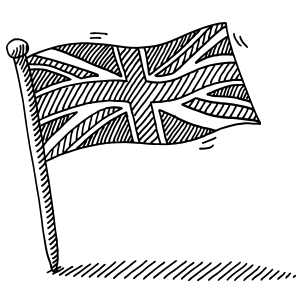When Vishal Balasubramaniam left his tech job in India to craft a life as a tech entrepreneur elsewhere, he looked at MBA programs in the United States and continental Europe.
And then he started looking at programs in Ireland.
“I wanted to get into a tech center, to start my own tech venture,” Balasubramaniam says. “I noticed that a number of big tech companies have a significant presence in Europe, in Ireland, be it Facebook, Microsoft, Google.
He adds: “the start-up culture in Ireland is very vibrant; there are lots of opportunities to do your own company.”
Ireland conjures up images of a rural land, a rolling green countryside dotted with sheep and thatched-roof cottages, crumbling castles and jagged coastline cliffs. But also of a devastating recession marked by emigration and unemployment at the end of last decade.
However, Ireland’s business scene is roaring back to life in Dublin, the capital city, which is rapidly becoming a hub of biotech, medical device firms, engineering, pharmaceutical and tech companies such as Microsoft, Facebook and LinkedIn. MBA students are correspondingly heading to one of the MBA programs on Ireland’s green shores, to get in on the action.
“Ireland is starting to pick up again,” says Aine McManus, head of faculty at Griffith College’s Graduate Business School. “There’s an energy behind a lot of the companies. MBAs come out of the program, they are 28 or 29, they are young and smart and they find employment quite easily. If they return to France or to their home city or town, they may not find employment that easily.”
A range of MBA offerings in Ireland
For those interested in pursuing an MBA in Ireland, an increasing number of options are out there. These include full-time programs at schools such as Griffith College, University College Dublin’s Smurfit School of Business, the University of Dublin’s Trinity School, as well as EMBAs at the National University of Ireland in Galway and University College Cork.
Many of these schools are drawing more international students. Griffith, for instance, drew students from 22 nationalities back in 2010, but more recently, students from over 40 countries attend the program during any given year. Five years ago, many of those students came from India and China, but now the school sees more students from France, Germany, Turkey, Vietnam, Malaysia and Spain.
Likewise, some 80 percent of the current Trinity MBA class is made up of international students.
Officials say that international interest in Ireland stems not just from the burgeoning industries there, but also from a less hectic environment than New York or London.
“It’s an easier environment. It’s not overpopulated. It has a very good balance of lifestyle and work,” Lawlor says. “Whether you are interested in cultural or sporting activities, there are good opportunities to get involved in all of them.” Lawlor adds that Ireland boasts a good education system for students who have children who need to attend school.
Students also enjoy easy access to the rest of Europe in their personal time via low-cost airlines, sampling a plethora of different cultures, cuisines, experiences and languages.
Post-MBA careers in Ireland: Google, Facebook, and more
Today, Ireland is a leader in the tech world. Dublin’s “Silicon Docks” area is home to industry leaders, such as Google, Facebook, Amazon, eBay, Apple and Airbnb — all of whom are drawn by the country’s business-friendly (tax) regulations and technological capabilities.
Amanda Shantz, director of Trinity College Dublin’s MBA, says: “We build relationships with top organizations in Ireland to provide a branch for our students to connect with them.” On the school’s consultancy projects, for instance, MBA students have worked with Salesforce and Dell. One of the top recruiters of Trinity’s MBAs is Microsoft.
The growth of tech companies in Ireland has influenced a new generation of entrepreneurs, with Dublin ranked in the top-ten by the European Digital City Index thanks to its fertile startup infrastructure.
“We are at the forefront of fostering an entrepreneurial spirit,” Shantz says. She cites independent research showing that Trinity graduates have founded more companies than graduates from any other European university over the past five years.
Much startup support is on offer. Earlier this year, Trinity attended the selective Global Solutions Initiative Summer School, where six entrepreneurial students met with international think-tanks, Nobel Prize laureates and representatives from media, politics and civil society.
Getting a work visa after an MBA in Ireland
One reason for the increased interest among international MBA applicants is that, unlike other English-speaking MBA markets such as the US and UK, Ireland offers a work visa that allows students to stay in the country after they complete their degree. International (non-EU) students who graduate with an MBA in Ireland can generally stay in the country for up to two years to find work.
“The UK would be considerably more restricted nowadays,” says Michael McDonnell, specialist executive MBA program manager at University College Dublin. “There’s quite an administrative and bureaucratic hurdle now, to stay on. And we can offer more or less everything that the UK offers. We are more or less a short hop on a flight from London. Some people might see us as a route into that market as well.”
An MBA in Irleand in a post-Brexit EU
Beyond the country’s natural beauty and its promising post-study work opportunities, there's another reason to study for an MBA in Ireland: With Brexit looming, the plucky Emerald Isle will soon be only one of two English-speaking nations in the EU. This fact alone is attracting businesses to Ireland’s shores.
“On course to become the fastest-growing economy in Europe for its fourth consecutive year, Ireland is the natural alternative to the UK by EU businesses and jobseekers,” says Shantz at Trinity College Dublin.
Major global banks including Wells Fargo and Bank of American Merrill Lynch are eyeing Dublin as an alternative to London post-Brexit, to maintain the “passporting” rights that let them sell services across the EU.
For Vishal Balasubramaniam, Dublin’s vibrant and multicultural atmosphere was a major draw. After he graduated from his MBA program at University College Dublin in 2012, he stayed in the city and worked at Microsoft as a manager for several years before he moved to California to continue to work for the company.
But he adds: “Ireland might not be the best destination for someone who is looking for a career in industry, banking, or manufacturing. There are some opportunities, but it’s not the same as in the US.”










